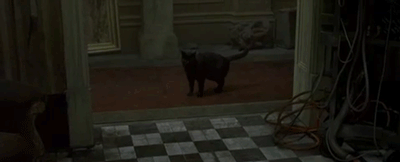Hello Steemians !! I thank you for your patience, I put a lot of time before leaving the suite, I am in the midst of tests in my university and I did not have so much time to work on my publications ...
Today I continue my momentum on our incredible brain, so get comfortable and hang your belts because today we will talk about the effect of “déjà-vu” !! So sit back and hang your belts because today we are going to talk about the effect of “déjà-vu” !!

The "déjà-vu" effect:
First of all, the origin of the term. He is in French (for all languages), because it is a French philosopher, Emile Boirac, who gave him his name. It could have been called the Boirac syndrome, or something more complicated like "Identifizierende Erinnerungsfälschung" (it's not a joke, it almost happened) but fortunately for us, for the sake of simplicity it's already -which has been chosen, most likely because it describes quite well a phenomenon which touches episodically between 60 and 70% of the population and which therefore must be easy to use and to understand by all.
Then, what the "déjà vu" effect is exactly? Well for those who do not know it is the sensation precisely to have already seen, or experienced a situation (I know, for now this article is not used much ...). And the "déjà-vu", how does it happen and why? And weelllll, we do not know! There are about as many people who have looked at the subject as there are different opinions. A few years ago, one of the most popular theories was that “déjà vu” is the sensation that happens when an eye collects an image a few milliseconds before the other. But she was literally shattered by the testimony of a blind person claiming to be feeling “déjà-vu”. Since we know that the brain knows how to synchronize the data it receives when it seems necessary. For example when we hear a sound, it seems to reach our ears at the same time, which is not the case as the sound is propagated in the air at 340 m / s (and therefore much slower than our neurons).
 !
!
And since then, we have a new hypothesis recognized as being the head of the hypotheses: it involves, through experiments, an alteration of the functioning of the zone whose job is to detect novelty. It is called the "rinhal zone" and is located under the hippocampus in the heart of our brain.
That's all for today, we'll see you soon with an article on the perception of faces!
Hey bro, sounds very interesting but I still did not get an understanding on the phenomenon from the post. Is all you are saying that we know nothing about it? :)
Downvoting a post can decrease pending rewards and make it less visible. Common reasons:
Submit
Downvoting a post can decrease pending rewards and make it less visible. Common reasons:
Submit